Plants
-
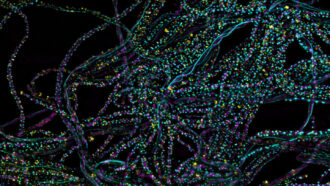 Plants
PlantsA single particle of light can kick off photosynthesis
In a new experiment with bacteria, a lone photon sparked the process of turning light to chemical energy.
-
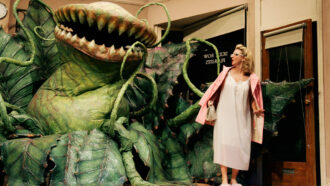 Plants
PlantsCould a plant ever eat a person?
For now, humans aren’t on the menu for carnivorous plants. But what would it take for one to consume a person?
-
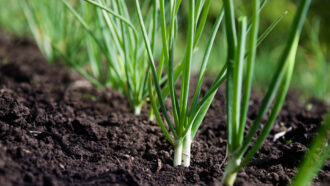 Environment
EnvironmentFungi help rescue crops being harmed by microplastics
Microplastics in the soil hinder plant growth. But two finalists at Regeneron ISEF found that fungi and farm waste can reduce the harm.
-
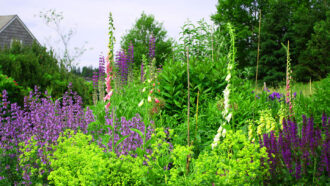 Environment
EnvironmentMaking yards more diverse can reap big environmental benefits
Replacing grass with native plants uses less water and fewer chemicals while providing additional benefits to people and wildlife.
-
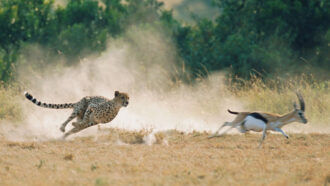 Ecosystems
EcosystemsScientists Say: Food web
All the species in an ecosystem and the feeding relationships between them get summed up with this handy picture.
-
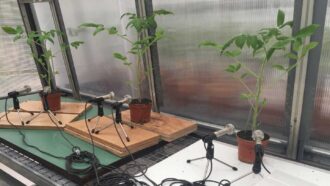 Plants
PlantsAnalyze This: Plants sound off when they’re in trouble
When dry or cut, tomato and tobacco plants make sounds too high for humans to hear. Such sounds could provide a way to snoop on crops.
-
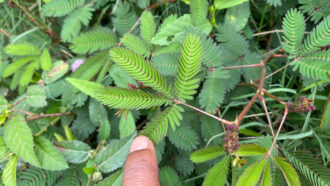 Plants
PlantsMimosa plant ‘muscles’ fold tickled leaves fast
A mimosa plant uses special cells to close leaflets when bumped and then reopen them — again and again.
By Susan Milius -
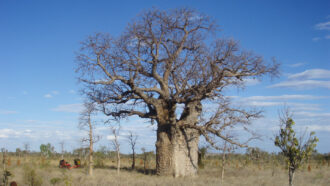 Archaeology
ArchaeologyCarvings on Australia’s boab trees reveal a people’s lost history
Archaeologists and an Aboriginal family are working together to find and document a First Nations group’s lost ties to the land.
By Freda Kreier -
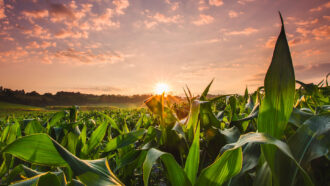 Chemistry
ChemistryScientists Say: Rubisco
Rubisco is a key protein in the process of photosynthesis, which feeds plants — and, in turn, us.
-
 Chemistry
ChemistryExplainer: All about carbon dioxide
Animals and other life on Earth exhale carbon dioxide, which plants use for photosynthesis. But too much of this gas can perturb Earth’s climate.
By Trisha Muro -
 Plants
PlantsWhy dandelions are so good at widely spreading their seeds
Individual seeds on a dandelion release most easily in response to winds from a specific direction. As the wind shifts, this scatters the seeds widely.
-
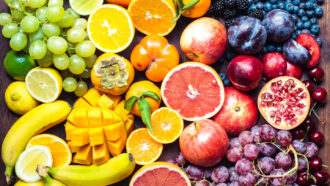 Plants
PlantsScientists Say: Fruit
Some foods usually called vegetables — such as tomatoes, cucumbers and peppers — are actually fruits.